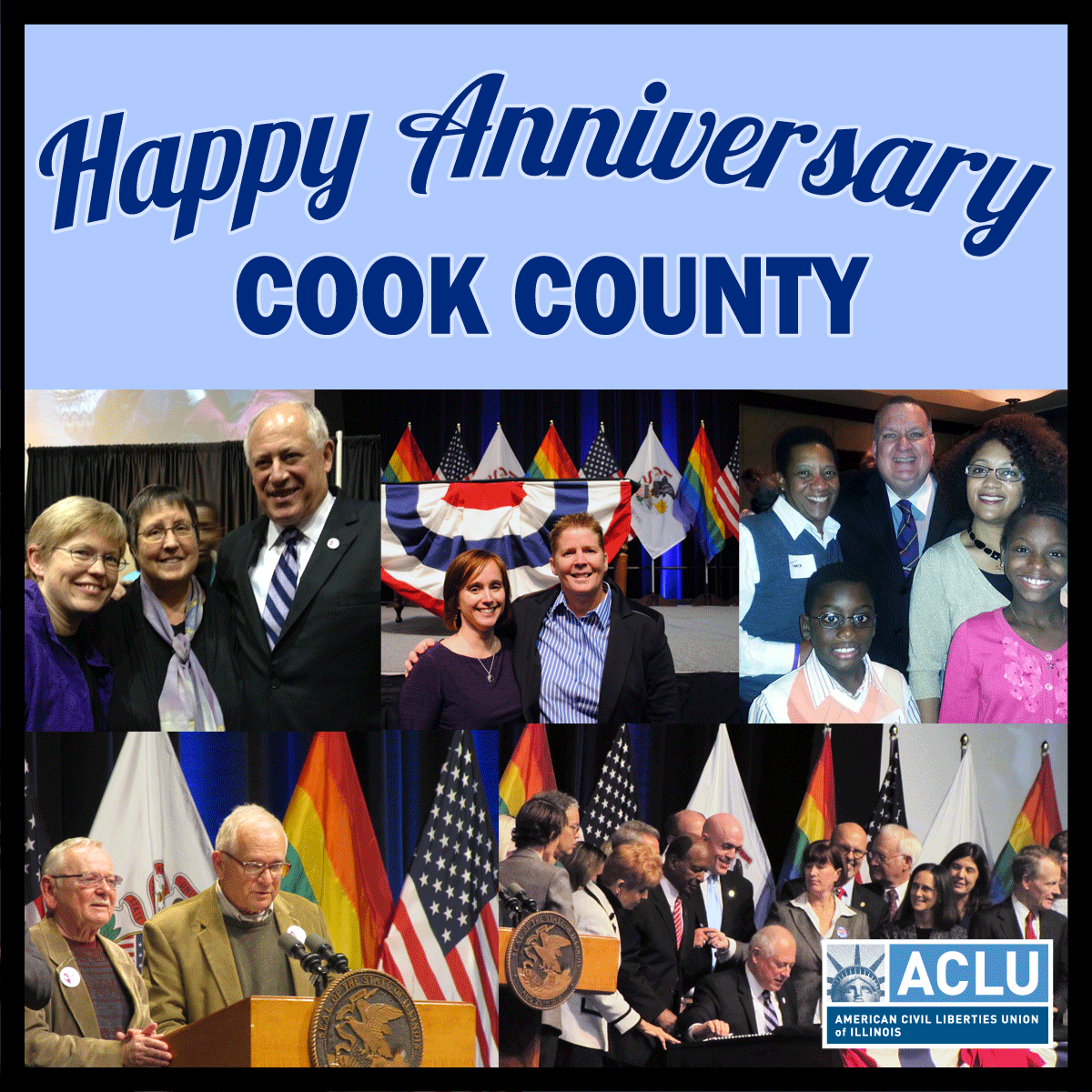A year ago today was a big day for many couples in Cook County. They were allowed to legally get married. In a case brought by the ACLU of Illinois and our friends at Lambda Legal, a federal court judge in Chicago lifted Illinois' ban on the freedom to marry for same-sex couples, not waiting for June 1st, when Illinois' new marriage equality law went into effect. It was a joyous day, with lots of couples streaming to the Daley Center to be married.
Since February 21 of 2014, more than 6,500 gay and lesbian couples have married Cook County. That’s more than 13,000 citizens now exercising and celebrating their rights. It’s undoubtedly something we can all celebrate along with them.
The Cook County Clerk’s Office took a detailed look into the thousands of newlywed couples, finding that equality in Cook County now spans all age groups, races, education levels, and home zip codes.
According to the study, 66 percent of the licenses were issued to couples in the Chicago-area, but more than 1800 of the newlyweds were from out the area and travelled here for the sole purpose of legalizing their unions. For almost a quarter of them, the couples were reaffirming their previously legalized civil unions, now honoring them as the marriages. Marriage equality was achieved for the rest of Illinois later in 2014, adding to what was already an historic and exciting year for marriage rights.
The marriages were among couples of all ages, with the average being 42, but with couples ranging from 17 years of age all the way to 93. Of the Cook County same-sex newlyweds, 52 percent are male and 48 percent are female, 68 percent are Caucasian, 14 percent Hispanic, 13 percent African-American, 4 percent Asian, and 1 percent racially identified as “other.” More than 80 percent of them are either college-educated or in the process of earning their degree, with the most popular professions being teachers, doctors, lawyers, nurses, and members of the U.S. military, once again proving that loving couples come in all forms.
“As we move closer to achieving the freedom to marry all across the United States, this is a day to celebrate and remember what has been achieved in Illinois,” said ACLU of Illinois Executive Director Colleen Connell.
While it was 6,500 same-sex couples who got married in the last year in Cook County, this number actually reflects a victory for fairness and for all residents of Illinois.
Date
Saturday, February 21, 2015 - 8:00amFeatured image


